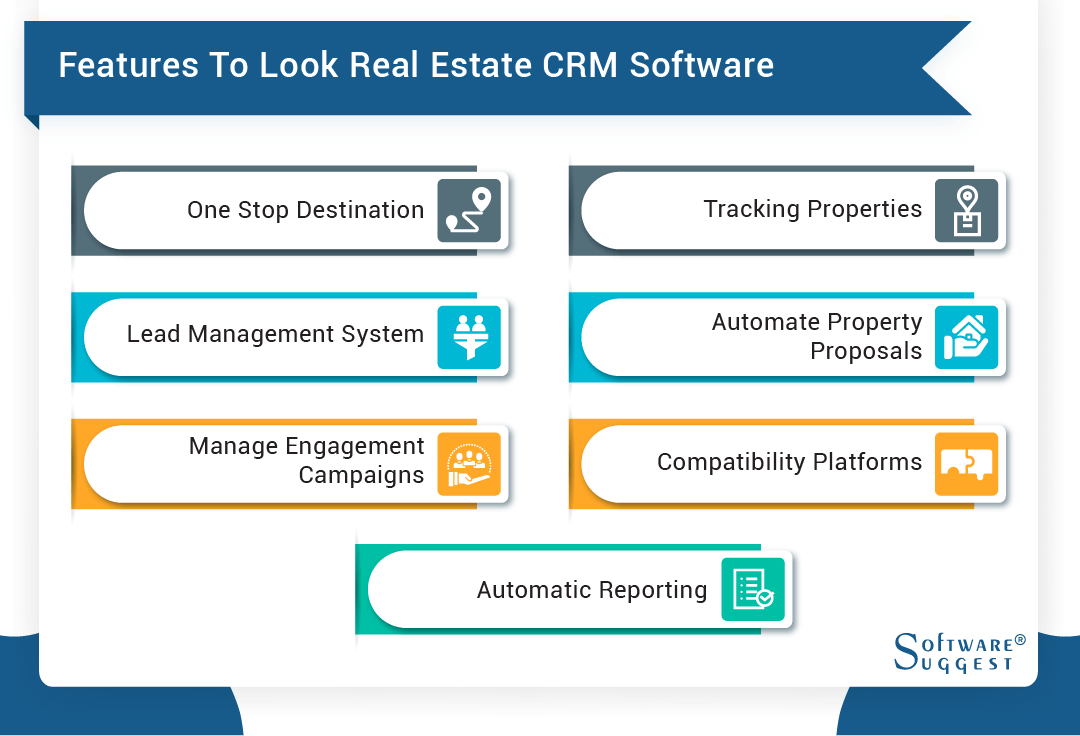In the realm of real estate, the advent of CRM for real estate has revolutionized business practices, empowering agents and brokers with cutting-edge tools to streamline tasks, enhance efficiency, and elevate lead generation and conversion rates.
Delve into this comprehensive guide to discover the transformative power of CRM for real estate, exploring its essential features, best implementation strategies, and how it can propel your business to new heights.
Benefits of CRM for Real Estate
Customer Relationship Management (CRM) software has revolutionized the real estate industry by streamlining operations, enhancing lead management, and improving customer satisfaction. A real estate-specific CRM offers numerous advantages that can empower businesses to achieve their goals.
Streamlined Task Management
A CRM system centralizes all client data, communications, and activities in one easily accessible platform. This eliminates the need for multiple spreadsheets and scattered notes, saving time and reducing the risk of errors. With automated workflows and reminders, agents can stay organized and prioritize tasks effectively.
Improved Lead Generation and Conversion
CRM software helps capture and qualify leads from various sources, such as websites, social media, and referrals. By tracking lead interactions and preferences, agents can personalize their communication and nurture relationships, increasing the chances of converting leads into paying clients.
Enhanced Client Communication
A CRM system enables seamless communication with clients through multiple channels, including email, phone, and instant messaging. Agents can quickly respond to inquiries, schedule appointments, and share property details, fostering stronger relationships and building trust.
Data-Driven Insights
CRM systems provide valuable insights into client behavior and preferences. By analyzing data on lead conversion rates, customer demographics, and sales performance, agents can make informed decisions and optimize their strategies for better results.
Features to Consider in a CRM for Real Estate

Selecting the right CRM for your real estate business is crucial for streamlining operations, enhancing productivity, and nurturing customer relationships. Consider these essential features to ensure you choose a solution that aligns with your specific needs:
Lead Management, CRM for real estate
Lead management is the foundation of any CRM. A robust CRM should provide tools for capturing, qualifying, and tracking leads throughout the sales pipeline. Look for features such as:
- Lead capture forms that can be embedded on your website and social media pages.
- Lead scoring and qualification tools to prioritize promising leads.
- Lead routing capabilities to assign leads to the appropriate agents or teams.
Property Tracking
Managing your property inventory is essential for real estate professionals. A CRM should offer comprehensive property tracking capabilities, including:
- Property listing management to keep track of all your active and inactive listings.
- Property search tools to help clients find properties that meet their criteria.
- Integration with multiple listing services (MLSs) to ensure your listings are syndicated to a wider audience.
Marketing Automation
Marketing automation can help you nurture leads and automate marketing tasks. Look for a CRM that offers features such as:
- Email marketing capabilities to send personalized emails to leads and clients.
- Social media integration to connect with clients on social media platforms.
- Drip campaigns to nurture leads over time with a series of automated emails.
By carefully considering these features, you can choose a CRM that empowers you to manage your real estate business more effectively and efficiently.
Implementation and Best Practices for CRM in Real Estate

Implementing a CRM in a real estate business requires careful planning and execution to maximize its benefits. Here are some best practices to consider:
Data Management: Establish clear data entry guidelines, ensure data accuracy and consistency, and regularly clean and update data to maintain its integrity.
User Adoption
Promote user adoption by providing training, support, and incentives to encourage team members to embrace the CRM and its benefits.
Ongoing Optimization
Continuously monitor CRM usage, identify areas for improvement, and make adjustments to enhance its effectiveness and alignment with business goals.
Integration with Other Business Tools
Integrate CRM with other business tools, such as email marketing, lead generation software, and accounting systems, to streamline workflows and improve data flow.
Closure

Harnessing the capabilities of CRM for real estate is a game-changer for the industry. By embracing these cutting-edge solutions, real estate professionals can automate mundane tasks, nurture leads effectively, and gain invaluable insights to drive informed decision-making. As technology continues to reshape the real estate landscape, CRM will undoubtedly remain an indispensable tool for success.
Query Resolution
What are the key benefits of CRM for real estate?
CRM for real estate streamlines tasks, improves efficiency, boosts lead generation, and enhances conversion rates.
What essential features should a CRM for real estate have?
Lead management, property tracking, marketing automation, and integration with other business tools are crucial features.
How can I implement CRM effectively in my real estate business?
Follow best practices for data management, user adoption, ongoing optimization, and integration with existing systems.